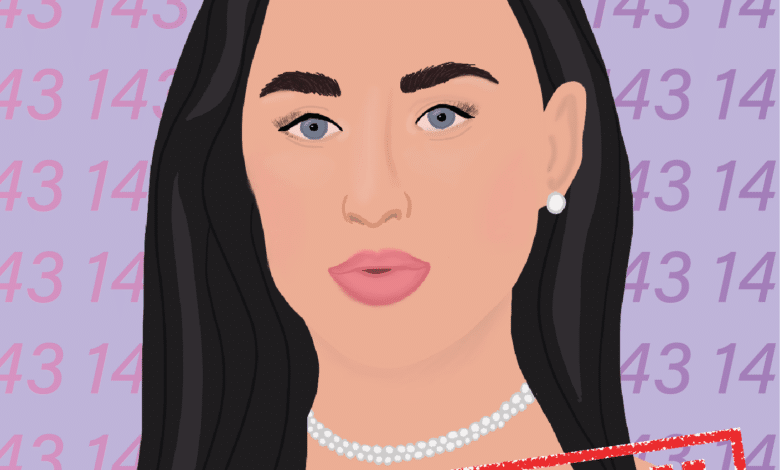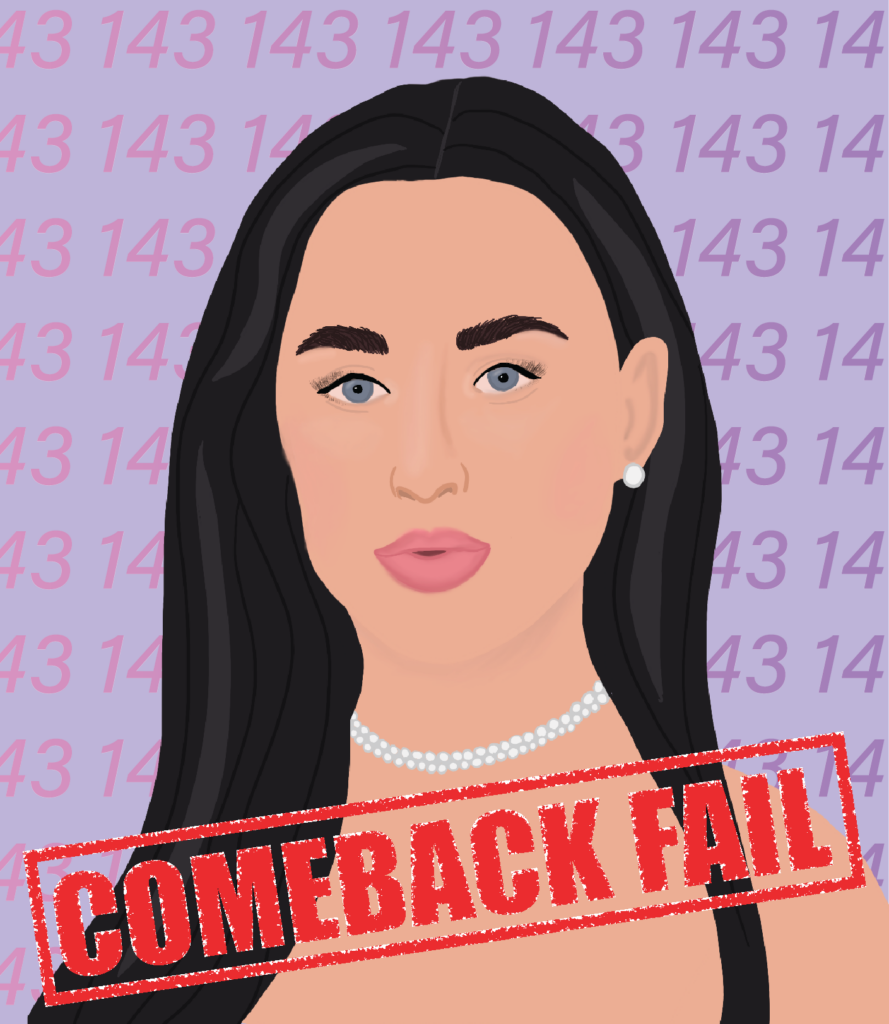
Perry’s latest album is shockingly out of touch
By Elijah Nevlin
The release of Katy Perry’s newest album, “143,” on Sept. 20 marked a day of triumph in her long career, as it launched her back into superstardom with levels of success that she had not seen in over a decade.
Or rather, that’s how the record label executives told Perry the day would go. “143,” Perry’s first album in four years, was pitched as a comeback for the pop star after years of underperforming albums and significant loss to her luster. In reality, the album dropped like a tree in the woods with nobody to hear it. If Katy Perry attempts a comeback album and nobody cares, is it really a comeback?
For context, in 2014, singer Kesha accused Lukasz Gottwald, known in the music industry as producer Dr. Luke, of sexual assault. Two years later, in the midst of lawsuits, Kesha sent a private text message claiming that Gottwald had also sexually assaulted Perry.
Gottwald used this text, which had been exposed through a prior lawsuit, to sue Kesha for defamation. In 2018, Perry testified in court that she had never been assaulted by Gottwald. After years of legal appeals and overturned rulings, the case was settled just last year.
While nobody other than Gottwald and Kesha will truly know what happened between the two, countless musicians took Kesha’s side throughout the legal battle, including Perry. Despite her 2018 testimony on the side of Gottwald, Perry ceased working with the producer for over a decade.
With “143,” Perry once again employed the help of Gottwald for producing 10 of the 11 songs. For the bold social stance that the collaboration signifies, Perry had to be expecting a substantial increase in song quality, a true return to pop star status for someone who was once the biggest artist in the world.

Instead, Perry finds herself with less identity than ever. The songs of “143” hardly sound like Katy Perry songs at all, which is ironic during an era in which her roots in sound and genres heavily influenced today’s popular artists. The album is full of drum-heavy, same-sounding, artificial instrumentals that sit closer to the average free-to-use Soundcloud beat than a high-budget pop album.
The bright synthesizers, campy lyrics and charming melodies that made Katy Perry songs surefire hits once upon a time are not present at all. The album feels sterile, created in a corporate office instead of a music studio. “143” is the audio equivalent of an Apple Store.
The songs are strikingly immature. Perry, in her heyday, was never a profoundly mature artist, but she grew across the albums preceding “143.” Much of her previous album, “Smile,” was written with her own mental health struggles and her marriage to Orlando Bloom in mind. “Smile”’s lead single, “Daisies,” was a tribute to Perry’s daughter, whose birth coincided with the album’s release.
In “143,” instead of unique insights on a mother facing new challenges raising her daughter, or really anything that a 40-year-old mother would realistically talk about, Perry instead sings about having crushes, “trippy trippy daddies” taking her on rides and other similar focus-grouped topics. For someone who once had an iron grip on pop culture, Perry has become shockingly out of touch.
The album employs four features, which is more than Perry has ever had for a single release. Each feature only does Perry a disservice, as it never feels as though 21 Savage or Doechii are making a special appearance on the newest Katy Perry song. Instead, each song sounds like it could be their own as much as it could be Perry’s, if not more so. The soullessness of the album is amplified when it is continually proven that anybody could be singing these songs.
The closing track, “Wonder,” attempts to be a genuine message of optimism to Perry’s daughter, the sole example throughout the album. The cherry on top comes with her four-year-old providing guest vocals, which is arguably a fifth feature. The potential for a sweet moment, a heartwarming chance for Perry to duet with her own daughter, is ruined with a comical amount of autotune. Instead of a kid singer, uniformed listeners are more likely to identify the guest vocals as a robot or AI voice than a real child. It makes the song sound far worse than Perry’s daughter’s out-of-tune singing ever would have.
“143” is, by all metrics, a spectacular failure. Any chance of a true Katy Perry revival has been squandered. A once-beloved discography has been tainted forever by one last attempt to appeal to a demographic that Perry and Gottwald do not understand in the slightest. Katy Perry had her chance to ride off into the sunset. Instead, right at the horizon, with the whole world watching, she jumped off the “dark horse,” falling flat on her face.
Elijah Nevlin is a senior marketing major



